Mavis Mullins MNZM (Rangitāne, Te Atihaunui-a- Paparangi, Ngāti Ranginui) |
 |
|
| Chair, Te Whenua Rahui | ||
| Mavis Mullins MNZM is a recognised leader in Aotearoa New Zealand’s primary industry. She has chaired a number of large Māori land-based incorporations and sits on the board of Moana New Zealand, New Zealand’s largest Māori owned fishing company. With a passion for food, fibre, whenua and whānau, all her energy is directed towards her mission to sustain and protect taonga Māori. Mavis is also a passionate advocate for innovation in matters of community, agribusiness and protection for Papatūānuku. Her contribution to New Zealand business has seen her recognised with many honours and awards, including Member of the New Zealand Order of Merit in 2002 for services to the wool industry. Induction into the New Zealand Business Hall of Fame and the same year awarded Outstanding Māori Business Leader of the Year from the University of Auckland. |
||
Richard Archer |
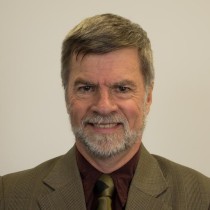 |
|
| Emeritus Professor, Massey University | ||
| After four years in deer by-product processing industry then 19 years in the dairy processing industry Richard Archer returned to Massey University in 2004 to head Engineering, and then the Institute of Food, Nutrition and Human Health. Richard Archer was Chief Technologist of the large MBIE-funded FIET programme on food process engineering and now leads a number of projects and programmes, mostly for food industry companies in New Zealand and overseas. Richard was President of NZIFST from 2019 – 2021. |
||
Kevin Marshall CNZM |
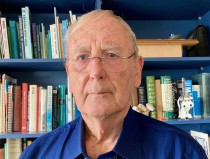 |
|
| Industry Expert, Retired | ||
|
|
||
Rob Archibald |
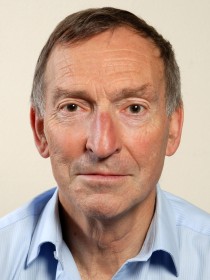 |
|
| Industry Expert, Retired | ||
| Rob’s career has focused on adding value to low value meat cuts and animal byproducts. He initially headed up the Processed Meats Section of the Meat Industry Research Institute of NZ before becoming Manager for Research & Development, ANZCO Food, CEO, Meatvision, and General Manager, Taranaki Bio Extracts. During this time his goals were to develop new businesses, new products, new processes, and new equipment within the NZ meat industry. He successfully led teams that developed jerky products, pre-cooked patties, a DEXA scanner to determine the fat content of meat, bone products as ingredients for pharma capsules, bone broths, and high value meat meals for petfood. | ||
Julian Heyes |
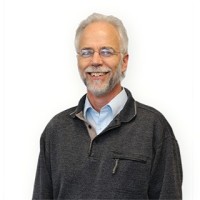 |
|
| Emeritus Professor, Massey University | ||
|
Professor Julian Heyes, a distinguished academic, earned his Doctor of Philosophy from Oxford University. His specialised area of expertise lies in postharvest science. Having authored 67 journal articles, seven book chapters and 54 reviewed conference publications, Professor Heyes’ work has garnered significant recognition with 1930 citations to date. He has been chief- or co-supervisor for 28 completed PhD students who are now working in the New Zealand fresh product sector or at overseas universities. Professor Heyes has been honoured with a Fellowship from the New Zealand Institute of Agricultural and Horticultural Sciences since 2009. He held an Honorary Fellowship at Plant and Food Research from 2012 to 2018. His commitment to the field is further evidenced by his life membership of the New Zealand Society of Plant Biologists, a recognition dating back to the year 2000. Professor Heyes extends his expertise globally as an Adjunct Professor at the University of Mataram, Indonesia. He is continuing to review science programmes for industry and governments, to serve on the organising committees of upcoming conferences and to support Massey’s international networks. He plays a pivotal role in ensuring the continuity of strength and expertise in the horticultural sector of New Zealand. |
||
Volker Kuntzsch |
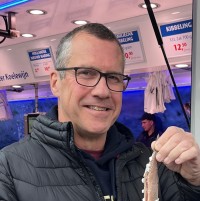 |
|
| CEO, Cawthron Institute | ||
| After spending his youth in Namibia and studying in South Africa (he holds a Master of Science in Zoology from the University of Stellenbosch), Volker worked in seafood related businesses spanning fishing companies and FMCG for more than 30 years. He worked in South Africa, Namibia, Germany, the UK, USA and Japan before joining Sanford in New Zealand as CEO in 2013. Volker is currently the CE of New Zealand's largest independent science organisation, the Cawthron Institute. The 100+ year-old science institute is a key player in building sustainable primary industry in New Zealand |
||
Kalmia Kniel |
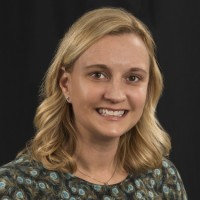 |
|
| Professor, University of Delaware | ||
| Dr. Kalmia (Kali) Kniel is Professor in the Department of Animal and Food Sciences at the University of Delaware. Her teaching responsibilities include courses on foodborne disease, food microbiology, food systems and security. Dr. Kniel’s research includes understanding mechanisms of environmental persistence by bacteria, protozoa, and viruses in pre-harvest agricultural environments. Dr. Kniel leads the One Health certificate program and directs the Center for Environmental and Wastewater Epidemiological Research. Dr. Kniel is co-author on the textbook, Food Microbiology: An Introduction, more than 110 scientific publications, and more than 200 published abstracts for presentations. In 2015 she was awarded the UD Outstanding Teaching and Advising Award and the Elmer Marth Outstanding Educator award by the International Association for Food Protection (IAFP). In 2020 she was awarded the UD Outstanding Researcher Award. In 2022 she was awarded the IAFP Maurice Weber Laboratorian Award for distinguished laboratory contributions. Dr. Kniel is active with Institute of Food Technologists (IFT), American Society for Microbiology (ASM), and IAFP, where she was elected to the board in 2015 and served as IAFP President in 2020. Most recently Dr. Kniel has served on and chaired meetings of the Joint FAO/WHO Expert Meeting on Microbiological Risk Assessment and the National Academy of Sciences, Engineering and Medicine. | ||
Susan Tosh |
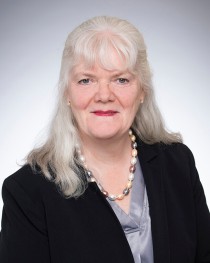 |
|
| Retired Professor, University of Ottawa, Harraways Visiting Professor | ||
| Dr. Susan Tosh is a recently retired professor at the University of Ottawa, Canada. Dr. Tosh has extensive experience as a researcher and director of research teams, completing several national and international research projects and establishing fruitful collaborative links between the food industry, government and universities. Her area of expertise is in the characteristics and health benefits of dietary fibres from cereals and legumes. She is interested in how research on functional foods can inform the development of sustainable and healthy food systems. Dr. Tosh is recognized for her investigation of the mechanisms by which oat β-glucan reduces blood glucose and serum cholesterol as well as the health benefits of barley, lentil, chickpea, bean, pea and soy fibres. She has developed simulated digestion methods to investigate how fibre affects the breakdown and absorption of nutrients. Her publication track record includes 84 peer-reviewed articles, 3 book chapters and numerous technical reports. | ||
Stuart Horne |
||
| Divisional Manager of the Economic Division, Ministry of Foreign Affairs & Trade | ||
| Stuart Horne is the Manager of the Economic Division at the Ministry of Foreign Affairs and Trade. Having previously worked as a corporate lawyer, Stuart joined the Ministry in 1999. He worked in the Ministry's Legal and Trade Negotiations teams, followed by a posting in Brussels. Stuart served as New Zealand's Special Coordinator to the Small Island Developing States Conference in 2014, following a posting as Deputy High Commissioner in Samoa. Prior to leading the Economic Division, Stuart also managed MFAT's Middle East and Africa Division. Stuart is married with two children and has a BA/LLB (Hons) from the University of Auckland. |
||
Steve Taylor |
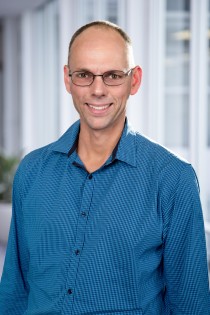 |
|
| GM - R&D Technology Capability, Fonterra | ||
| Steve Taylor has worked in Fonterra’s R&D centre for 32 years, mainly in protein ingredient development and applications for nutritional benefit. Initially as a researcher, then project management, followed by leading teams of scientists. He has had a deep involvement in everything from fundamental research, technology development, new ingredient development, customer partnerships, and R&D business strategy. His current role focusses on how Fonterra R&D can be done differently, including exploiting developments in generative AI, Machine Learning, and data analytics. Steve grew up on a dairy farm in Northland, trained in Biotechnology at Massey University, completed a PhD in Chemical Engineering at Cambridge University, and later completed an MBA at Massey UniversitySteve Taylor has worked in Fonterra’s R&D centre for 32 years, mainly in protein ingredient development and applications for nutritional benefit. Initially as a researcher, then project management, followed by leading teams of scientists. He has had a deep involvement in everything from fundamental research, technology development, new ingredient development, customer partnerships, and R&D business strategy. His current role focusses on how Fonterra R&D can be done differently, including exploiting developments in generative AI, Machine Learning, and data analytics. Steve grew up on a dairy farm in Northland, trained in Biotechnology at Massey University, completed a PhD in Chemical Engineering at Cambridge University, and later completed an MBA at Massey University. |
||
Ben Hunter |
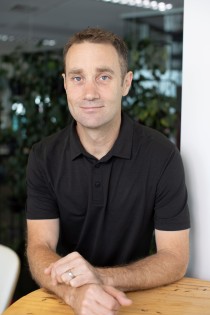 |
|
| Principle Data and AI Specialist, Microsoft | ||
| Ben Hunter is a Data & AI Specialist at Microsoft, having worked with some of the world’s largest organizations across New Zealand, the United Kingdom, and the United States. With expertise in cloud technologies and artificial intelligence, Ben is passionate about helping organizations design and build impactful AI solutions in the cloud. His work focuses on enabling innovation through scalable architectures, human-centered design, and responsible AI practices. | ||
Andrew Fletcher |
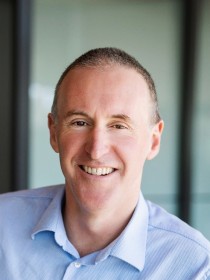 |
|
| Programme Lead - Sustainable Food Systems, Fonterra | ||
|
Andrew has been in the dairy industry since 1991 when he joined the New Zealand Dairy Research Institute. Trained as a Chemical Engineer, Andrew has been involved in a range of research, management and strategy roles based at the Fonterra Research and Development Centre in Palmerston North. From 2010 Andrew led Fonterra’s contribution to establishing the Transforming the Dairy Value Chain PGP programme – a seven-year innovation partnership between DairyNZ and Fonterra, co-invested by the Ministry for Primary Industries – and from 2015 to the end of the programme in 2018 was overall programme manager. Following from this he was seconded part-time to DairyNZ for four years to lead the implementation of DairyTomorrow – the NZ Dairy Industry strategy. Andrew is currently Programme Leader Sustainable Food Systems which includes work on GHG mitigation in pastoral systems, and how changes in on-farm technology are captured in product footprints. Andrew is an Honorary Fellow at the Riddet Institute and one of the founders of the Sustainable Nutrition Initiative that aims to provide evidence for the sustainable food systems debate. He is also co-chair of the International Dairy Federation Action Team on Life Cycle Assessment. |
||
Elle Archer |
||
| Director, Te Hapori Matihiko, AgriTech NZ | ||
| Elle Archer (Ngāti Tamaterā, Ngāti Raukawa, Ngāti Porou) is a strategist, futurist, and systems thinker working across Indigenous innovation, digital equity/excellence, science, and governance. With a career spanning 29 years across geospatial science, economic development, education, emergency management, and digital transformation, she serves in national and international leadership roles shaping future-focused, values-led ecosystems. Elle is a board member across multiple organisations. Her work sits at the intersection of culture, code, and community - weaving together AI, tikanga Māori, research, and data governance to reimagine futures where technology enhances wellbeing, restores balance, and honours Indigenous knowledge systems. Elle brings bold vision, strategic insight, and deep aroha into spaces that demand transformation. |